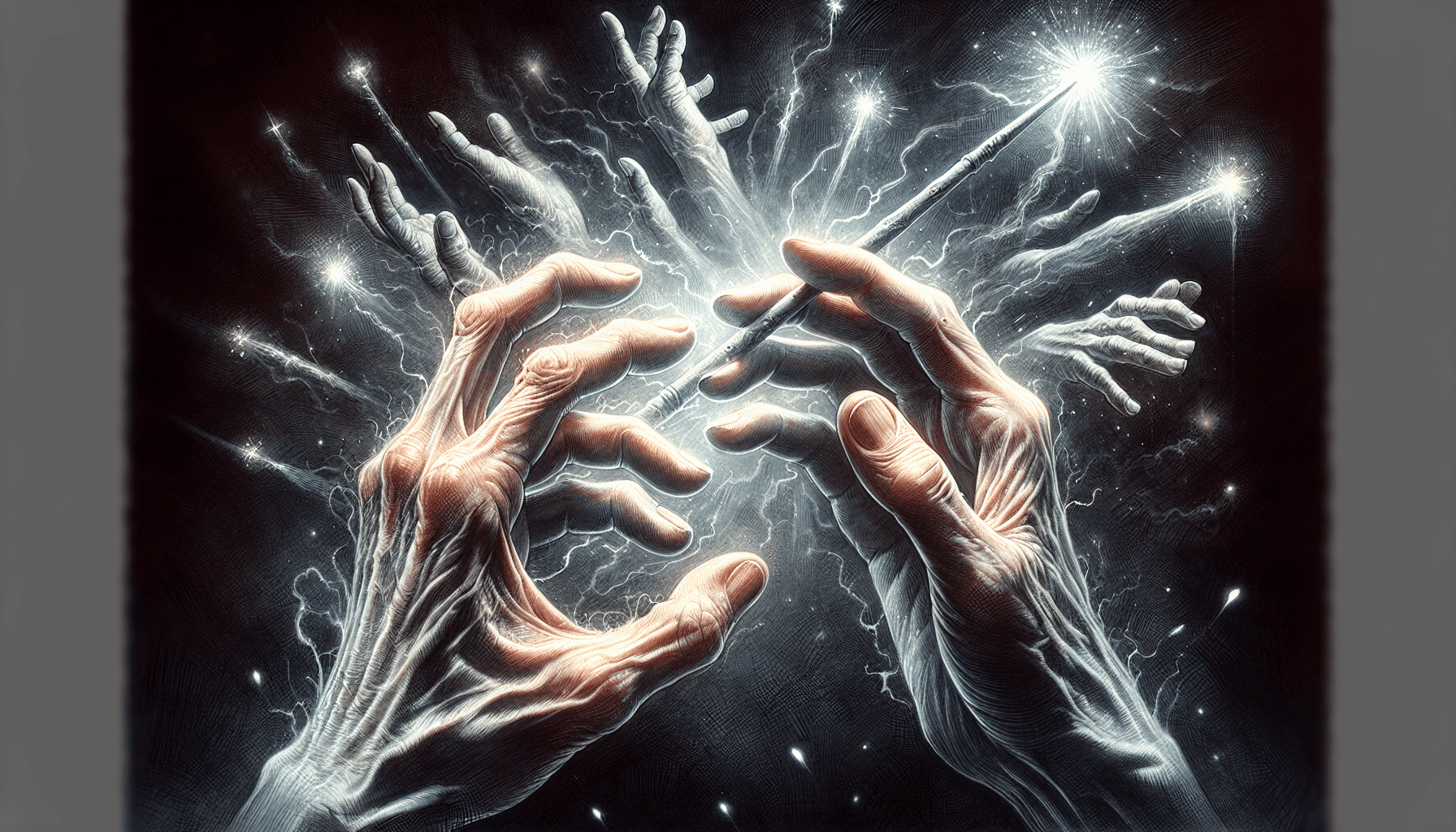
Blog: Mind of a Mind Reader
Jeff Newman: Mentalist, Magician, Trickster.

ROI of Fun: How Corporate Entertainment Boosts Employee Morale and Productivity
One of the biggest challenges employers face today is creating an environment that keeps their employees engaged, happy, and productive. And while there are plenty of ways to create that environment in a day-to-day landscape, many employers plan things like holiday parties, staff appreciation events, and more to help show their appreciation to the employees who keep the lights on.
The downside? A lot of times, those events can, shall we say…fall short. They’re boring, there’s no excitement, and it winds up being another place where employees watch the clock while waiting to leave. So, how do you fix this? Three words:
Get. Great. Entertainment.

The Art of Corporate Entertainment: A Strategic Guide for Success
Corporate events have come a long way. What used to be just a few drinks and a cheap meal with some co-workers has evolved into powerhouses of engagement, networking, and, increasingly, entertainment.
And while most organizations are adding entertainment to their events for fun, corporate entertainment has also increasingly become a strategic tool. It’s a way to nurture relationships, reinforce brand identity, and foster an environment where collaboration and innovation can thrive.

The Art of Persuasion: 4 Psychological Techniques To Influence Others
Human beings are social creatures.
And a LARGE portion of our brain is dedicated to communication. Spoken words, music, facial expressions, body language…our brain sees it all.
And no matter where you work, who you are, or what language you speak, there are ways you can use this psychology to help. Using your communication skills and body language to your advantage can make a lasting impact and help you be more persuasive to the people around you. While you think this may be something just for corporate professionals in high-profile organizations, this can be helpful for anybody. Understanding how critical persuasive communication skills are can be a huge advantage in any setting. So, what techniques can help you improve your communication skills and become a persuasive speaker?

A Mentalist Explains: Pareidolia And Faces That Aren’t Really There
Have you ever seen faces in places they don’t belong?
Maybe a wall outlet with a surprised expression? Or a smiling face in the holes of a cardboard box? Or the shadow of a person in chipped paint on a wall? Or, maybe most controversially…a face on the surface of Mars?

A Mentalist Explains: The Fox Sisters And The Birth Of Spiritualism
Psychics. Mediums. People who claim to speak to the dead. All of them can be traced back to a couple of young girls in 19th-century New York. Mentalist and magician is here to tell you (and debunk) the fascinating tale of the Fox Sisters.

The Psychology of Illusion: How Magicians Manipulate Your Mind
“How do you do that?!”
I get this question a lot. It comes with the territory of being a professional mentalist and magician. After all, performing the impossible is my job, so naturally, people want to know how I do it. But the truth is that there’s a lot more to it than just tricks.
Have you ever watched a magician perform and found yourself completely baffled by their tricks? You're not alone. Magicians have been captivating audiences for centuries with their illusions and sleight of hand. But have you ever stopped to think about how they do it? Not just their methods, but how do they manage to manipulate our minds and deceive our senses?
The psychology of magic is just as interesting as the methods of magic tricks, so let’s dive into the psychology of illusion and explore how magicians use it to create their mind-boggling performances!

Music To A Mentalist's Ears
People are surprised by what my favourite compliment is.
After all, I take a lot of pride in what I do, and I put a lot of work into my shows. So, like most people, I like the occasional compliment about my work now and again, and it's not uncommon to get compliments from the audience when we meet after the show. But every once in a while, I get (what I think is) the best compliment someone like me can receive. Let me explain...
After performing two shows on the Grand Princess this February, I ran into a woman from the audience while waiting for the elevator. She stops me and tells me what she thought about the show.

A Magician's Worst Nightmare
For those of you who are unaware, I have a university degree...in Kinesiology. Which I usually joke is a “degree for lifting heavy things for fun and fitness,” but the truth is, it provided me with an extensive knowledge of the why’s, how’s and what’s of the human body...including a pretty in-depth knowledge of human hand anatomy.
So once the first shock of panic and pain from the accidental slice occurred, the logical side of my brain automatically started doing an assessment of what could be wrong. With all the suspense of a Prime Time medical drama, I started to identify and landmark all the tendon, nerve, ligament, and muscle tissue locations that run through a thumb. Once the glass jar was removed and blood started to flood the area, the lack of visual accuracy and sudden increase of pain put a cease to the impromptu examination, but definitely didn’t put a cease to the panic that was going through my mind.
Why the panic? Because the thumb (and honestly, all your fingers and toes for that matter) are actually quite complex and delicate. We don’t usually put a whole lot of thought into it...mostly because we use our hands for everything. Cooking food. Reading books. Performing magic tricks. Changing tires. Building houses. Our hands get put through some pretty tough stuff, but in reality, it doesn’t take much to do some serious damage.

Magic: A Scientific Approach
Recently, my fiance and I were sitting with in my living room with a magically-inclined friend of mine. We had spent the afternoon discussing a few projects we all had on the go, and like these discussions usually do, we all went off on our unique tangents into stories, Youtube videos, and archival photos in our various social media profiles. You know what that’s like, right? Of course you do.
Now despite this wizard-friend knowing me for at least two or three years, she was unaware of my previous lives that have led me to the current magic-and-mentalism-based career I’ve chosen. Just to catch you up, before I was a professional mentalist, I was a baseball player, a bartender, an undergraduate scientist, an actor, and improviser, and of all things, a poster-child for the University of Lethbridge (which, in fact, was the direct result of my combined expertise in the “scientist” and “baseball player” fields...Maybe I’ll tell that story at a later date, but for now, back to the original story).

How To Become A Mind-Reader
When most people see or hear about what I do, there's a batch of inevitable questions that I expect to encounter from curious audience members. They have different variations, but they're all usually based in one of the following:
"How did you do that?!"
Can't tell you. If I did, not only would I be an absolutely terrible mentalist, but I can guarantee you'd be utterly disappointed.
"Tell me: does what you do give you an edge with the ladies?"
Nope. I'm just as scared of women and rejection as the next guy. (Luckily, I've managed to trick one into thinking I'm awesome, so I don't have to worry about it anymore.)
"But really though, do you have, like, intuition, or something?"
No. Although every once in a while, I manage to know exactly what the aforementioned lady wants for dinner before she says anything.
And, finally:
"How did you get into doing this? How does one become a mentalist?"
I like to think that the answer they're expecting is something like, "Well, I was an ambitious student at the Institute Of Magick And Mind-Reading in London where I spent unfathomable time and tuition dollars on honing this particular craft. Once I graduated, I decided to break my oath to keep my powers a secret in order to come here, tonight, and entertain you." The inquirer usually has a look of disappointment when I tell them that I learned how to do what I do by simply reading and research, rather than some fantastic story about attending a special school, being born with childhood "powers," or running away to join a circus and befriend a psychic gypsy-lady. From a distance, becoming a mentalist or magician looks an awful lot like getting a college degree. Research, read everything you find, practice what you've learned, and go back and re-learn when you make a mistake. While "I learned it from a book," is a very simplified explanation, it's basically how it is. At least, that's how I acquired the skills to be a mentalist. But, the steps that lead me there are far more interesting.
After hearing this question a bit more than usual lately, I began to think about it a little more thoroughly. So, I've decided to give you, dear reader, a step-by-step guide of how Jeff Newman: Mentalist came to be.
